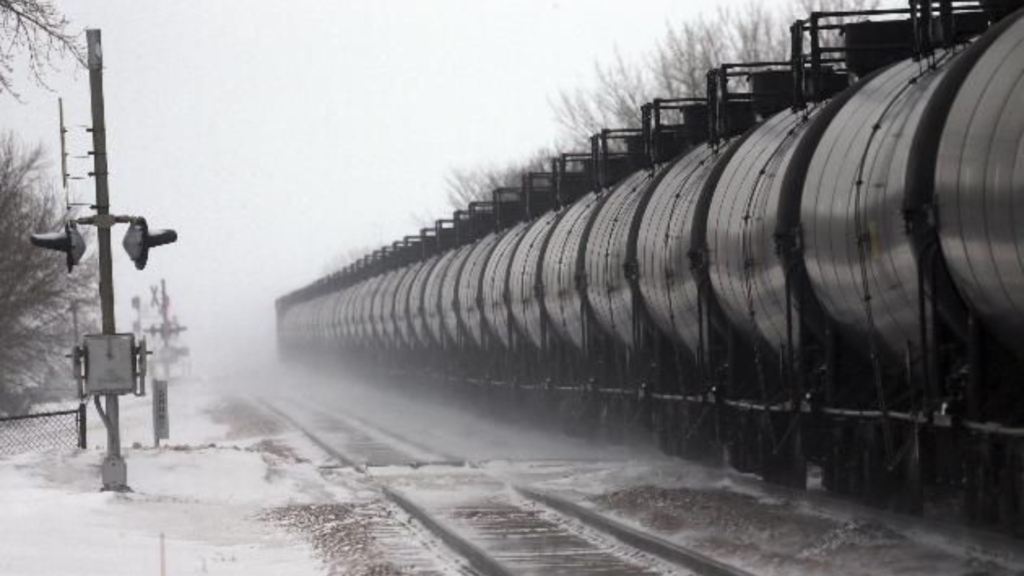If you’ve recently visited the gas station or looked at your heating bill, you’ve probably noticed that oil prices are rising. This rise isn’t just an isolated case; Hurricane Beryl and the ongoing unrest in the Middle East are the two main causes.
These elements significantly affect oil prices domestically and internationally, especially in America. Let’s explore the impact these events have on the market and what that means for each of us individually.
The Impact of Hurricane Beryl: Disruption to Production
Like most hurricanes, Hurricane Beryl is notorious for wreaking havoc across a large area. They have the potential to seriously disrupt oil production and supply systems, in addition to the apparent harm they may do to homes and infrastructure. Major oil-producing regions like the Gulf of Mexico are also vulnerable to hurricanes like Beryl.

Which forces oil companies like Shell and Chevron to evacuate their offshore drilling rigs and suspend operations. This instantly decreases supplies and halts oil extraction. In addition to stopping extraction, this kind of interruption can cause longer-term infrastructure damage that is expensive and time-consuming to fix.
The Challenge of Transportation
Oil extraction is important, as is oil transportation. Hurricanes can affect transportation networks like refineries, ports, and pipelines. Significant delays are also experienced in getting oil from offshore installations to refineries.

And ultimately to consumers due to flooding, strong winds, and storm surges. Even while oil is still being mined, these disruptions cause supply chain bottlenecks, resulting in shortages and increased prices.
Historical Perspective
Hurricanes Harvey and Katrina have demonstrated this in the past. The disruptions to production and transportation caused by these natural disasters result in sudden increases in oil prices. As the industry recovers, the consequences may continue for several months.

Hurricane Beryl follows this familiar pattern, raising concerns about persistently high prices. The disruption keeps prices high for a considerable amount of time by causing both short-term supply problems and long-term recovery difficulties.
Middle East Tensions: Geopolitical Conflicts
Political unrest and conflicts in the Middle East can significantly impact oil prices because the region is essential to the world’s oil output. The market is more volatile now than it was before. Major oil-producing nations include Saudi Arabia, Iraq, and Iran.

Disputes or rising political tensions can threaten the stability of their production. For instance, drone assaults on Saudi oil installations have in the past caused output disruptions. They are making markets uneasy due to concerns about continued hostilities and recurrent attacks, which raise prices through speculative trading.
ALSO READ: 150 Miles of Unspoiled Islands, Up for Grabs at $35M
Economic Sanctions
Sanctions, especially those that the US imposes on nations like Iran, have a big effect on oil prices. Because of these restrictions, these nations cannot export as much oil, which reduces supply globally and raises prices.

As traders adjust to anticipated shifts in supply dynamics, the mere expectation of harsher penalties or the possible easing of current ones can result in price variations. The oil market is already complex, and this uncertainty only makes it more so.
OPEC’s Role
To balance supply and demand, OPEC and its allies (OPEC+) coordinate production levels, which has a huge impact on the world’s oil supply. However, internal conflicts and outside influences can potentially disrupt these agreements.

For example, the issue may get worse if OPEC+ reduces output to maintain high prices. On the other hand, raising output to compensate for shortages brought on by the conflict could temporarily stabilize prices. Recent tensions have increased the significance of OPEC+ decisions, as each has a significant effect on world oil prices.
Effects on American Consumers:
Higher Gas Prices
What effects do world events have on Americans? From the gas pump to the grocery store, the effects are felt everywhere. The price of fuel will be most directly impacted. When oil prices rise, consumers are transferred costs associated with a higher risk or a lower supply of oil.

The average cost of gas has risen dramatically in the United States. This has affected everyone, from long-distance travelers to everyday commuters, particularly those living in rural areas with few other transportation options.
Increased Heating and Utility Costs
The rise in the cost of crude oil doesn’t affect only drivers but everyone else for heating oil and natural gas. In areas where heating oil is a common energy source, rising heating expenses as the winter season approaches can burden household finances.

Customers’ monthly payments may increase if natural gas-powered utilities raise their rates. This extra financial strain contributes to the effects already experienced at the gas pump and impacts all budgets.
Rising Costs of Goods and Services
When oil prices spike, almost every sector, including production and transportation costs, is impacted. Prices for products like groceries and gadgets rise due to manufacturers and distributors passing these costs along to customers.

Due to rising fuel costs, transportation-related services like ride-sharing and delivery also raise their prices. Businesses that are indirectly dependent on oil, like retail and agriculture (for equipment and fertilizers), also have greater operating costs, which has a greater effect on the economy overall.
ALSO READ: Porsche Buckles Up for a Drop-In Profitability for the 2024 Fiscal Year
Economic Uncertainty
Sustainedly high oil prices lead to economic uncertainty and strain consumer budgets. Making less money available for splurging on other goods and services since fuel and utilities are taking up more money.

The drop in consumer spending has the potential to slow economic expansion and may lead to inflation in all areas of the economy. Companies may have to pay more for manufacturing and transportation, which might have an adverse effect on profitability and raise prices for customers who don’t only use fuel and utilities.
Strategy for Coping
It’s important to consider measures to manage the financial impact of these rising prices. For example, reviewing and adjusting family budgets can help with managing rising expenses. You can also invest in energy-saving upgrades to reduce utility expenses.

Also, public transportation and carpooling are more cost-effective options than driving. Finally, keep yourself informed on changes in the oil market so that you can properly manage your budget and make wise financial decisions given the reality of unpredictable energy prices.
You Might Also Like:
How Well Are Americans Saving for Retirement?
A Detailed 2024 Review of AmeriHome Mortgage
How Much Does a Mortgage on a $500,000 House Cost?
Earn $10K/Month and Build Real Estate Wealth Without a Mortgage by Flipping Fixer-Uppers

